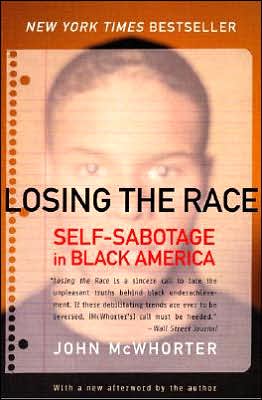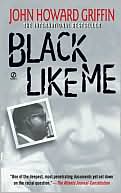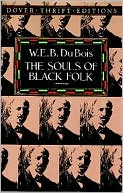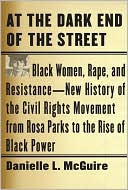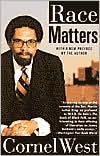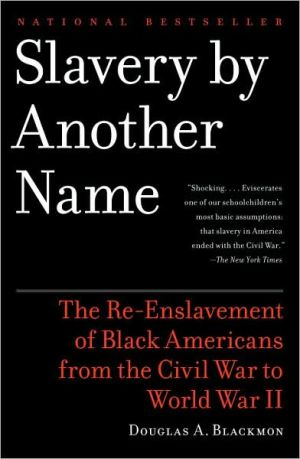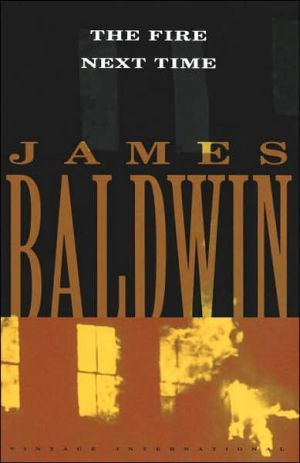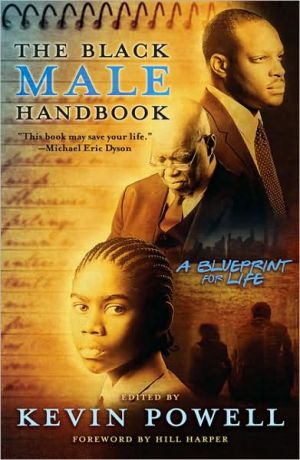Losing the Race: Self-Sabotage in Black America
Berkeley linguistics professor John McWhorter, born at the dawn of the post-Civil Rights era, spent years trying to make sense of this question. Now he dares to say the unsayable: racism's ugliest legacy is the disease of defeatism that has infected black America. Losing the Race explores the three main components of this cultural virus: the cults of victimology, separatism, and antiintellectualism that are making blacks their own worst enemies in the struggle for success.\ More angry than...
Search in google:
Berkeley linguistics professor John McWhorter, born at the dawn of the post-Civil Rights era, spent years trying to make sense of this question. Now he dares to say the unsayable: racism's ugliest legacy is the disease of defeatism that has infected black America. Losing the Race explores the three main components of this cultural virus: the cults of victimology, separatism, and antiintellectualism that are making blacks their own worst enemies in the struggle for success.More angry than Stephen Carter, more pragmatic and compassionate than Shelby Steele, more forward-looking than Stanley Crouch, McWhorter represents an original and provocative point of view. With Losing the Race, a bold new voice rises among black intellectuals.Publishers WeeklyAre African-Americans using past racial injustices as an excuse for not working to take advantage of contemporary opportunities? McWhorter, a linguistics professor at the University of California, Berkeley, thinks he has the answers to this question and others--and he points the finger directly at the black community. Starting with the premise that white racism is no longer the threat it once was, McWhorter singles out "the cult of victimology" and the glorification of white racism as a major cause for several social crises afflicting African-Americans. Offering little that has not been said previously by conservatives like Pat Buchanan and Shelby Steele, McWhorter uses a cookie-cutter approach to explain away recent race pressure points such as the arson directed against black churches, the high proportion of black inmates in America's prisons, the practice of racial profiling and police brutality. In each case, he finds fault with the African-American community's interpretation of these situations, accusing African-Americans of hypersensitivity to racial bias and a reluctance to relinquish the past. Victimology, as well as separatism, in his words, "gives failure, lack of effort and criminality a tacit stamp of approval." Most disturbing, his suggestion that a cultural trait drives the low scholastic performance of black youth borders on the views of those who consider heredity the cause of blacks' poor performance on standardized tests. Like many of the new black conservatives, McWhorter spends much time going after liberal columnists and social critics, attacking both their intent and message. Even his closing segment--"How Can We Save the African-American Race?"--sounds more like a well-worn campaign speech than a call to initiate a dialogue on race in the African-American community and the nation. (Aug.) Copyright 2000 Cahners Business Information.\|
Chapter One\ The Cult Of Victimology\ The fact of slavery refuses to fade, along with the deeply embedded personal attitudes and public policy assumptions that supported it for so long. Indeed, the racism that made slavery feasible is far from dead in the last decade of twentieth-century America; and the civil rights gains, so hard won, are being steadily eroded.\ — Derrick Bell, Faces at the Bottom of the Well, 1992\ Tyson is in the pen now. Strange fruit hanging from a different tree. Yet the strangest of all walk among us — as long as they're free, white, male, and twenty-one. The greatest of these qualities is the freedom. I wonder how it feels? I am trapped and can only say "Nooo" and hope my scream is loud enough to discourage the monsters and keep them back until I am strong enough, powerful enough to fight my way free. Powerful enough to slip the noose from my neck and put out the fire on my flesh.\ — Ralph Wiley, What Black People Should Do Now, 1993\ What more do they want? Why in God's name won't they accept me as a full human being? Why am I pigeonholed in a black job? Why am I constantly treated as if I were a drug addict, a thief, or a thug? Why am I still not allowed to aspire to the same things every white person in America takes as a birthright? Why, when I most want to be seen, am I suddenly rendered invisible?\ — Ellis Cose, The Rage of a Privileged Class, 1993\ These quotes are from books written in the 1990s by successful black men. The conception of blackAmerican life they represent is considered accurate, or at least a respectable point of view, by a great many people black and white of all levels of class, education, and income, one indication of which is that all three books were published by major mainstream houses, all were soon released in paperback, and none was even the author's first book.\ Yet most of us would be hard pressed to match these portraits with the lives of most of the black people we know. Are we really afraid that, as "civil rights gains, so hard won, are steadily eroded," Macy's is on the verge of refusing black patronage? Do all the black people we see at the movies, on planes, copping sports trophies, graduating from college, and eating in restaurants appear, even metaphorically, to have fire on their skin? Do we ruefully consider a home, a car, or a college degree — "things every white person in America takes as a birthright" — all but out of reach for the middle-class black people we know, who are the subject of Cose's book? How "invisible" is an author who manages to have books of his opinions regularly published by top presses? How many of us can truly agree with these authors that the Civil Rights revolution has had no notable effect upon black Americans' lives?\ Without falling for the line that racism is completely dead, we can admit that these quotes reveal a certain cognitive dissonance with reality. Yet they are anything but rare, and are one of myriad demonstrations that there is, lying at the heart of modern black American thought, a transformation of victimhood from a problem to be solved into an identity in itself. Because black Americans have obviously made so very much progress since the Civil Rights Act, to adopt victimhood as an identity, a black person, unlike, for example, a Hutu refugee in Central Africa, MUSE exaggerate the extent of his victimhood. The result is a Cult of Victimology, under which remnants of discrimination hold an obsessive, indignant fascination that allows only passing acknowledgment of any signs of progress.\ What Is Victimology?\ \ \ The charge that blacks engage in "peddling victimhood" is not new, but many might wonder how one could possibly criticize a group for calling attention to its victimhood. In this light, we must make a careful distinction. Approaching victimhood constructively will naturally include calling attention to it, and is healthy. However, much more often in modern black American life, victimhood is simply called attention to where it barely exists if at all. Most importantly, all too often this is done not with a view toward forging solutions, but to foster and nurture an unfocused brand of resentment and sense of alienation from the mainstream. This is Victimology.\ Two contrasting examples will demonstrate. Marva Collins saw that inner city black students in Chicago were posting the worst grades in the city year after year. She founded a school combining high standards with rich feedback, celebration of progress, and a focus on self-esteem and upward mobility. Its successful techniques have been adopted by schools elsewhere in the nation. This is addressing victimhood as a problem.\ On the other hand, Susan Ferecchio, a reporter for the Washington Times, visited the Afrocentric Marcus Garvey School to report on its progress in 1996. Asked to show her notes before she left, she refused according to journalistic protocol. For this, the principal Mary Anigbo told her to "get your white ass out of this school" and led a group of students in taking her notebook and then pushing, smacking, and kicking her from the premises. Anigbo first accused Ferecchio of pulling a knife on a student, then denied the episode ever happened, and then claimed that Ferecchio had deserved it. This was Victimology. What Anigbo did was meant not to allay victimhood but simply to express unfocused hostility: The physical violence Anigbo incited will do nothing to enhance the upward mobility of her students.\ In leading black American thought today, Victimology, adopting victimhood as an identity and necessarily exaggerating it, dominates treating victimhood as a problem to be solved. Most black public statements are filtered through it, almost all race-related policy is founded upon it, almost all evaluations by blacks of one another are...
Prefacevii1The Cult of Victimology12The Cult of Separatism503The Cult of Anti-intellectualism824The Roots of the Cult of Anti-intellectualism1375African-American Self-Sabotage in Action: The Affirmative-Action Debate1646African-American Self-Sabotage in Action: The Ebonics Controversy1847How Can We Save the African-American Race?212Notes263Acknowledgments271Index273
\ From Barnes & NobleBerkeley linguistic professor John H. McWhorter believes that African Americans are damaging themselves when they embrace images of victimhood. In this vigorously argued book, he asserts that black separatism and anti-intellectualism robs African Americans of their ability to succeed in our multiracial society. Losing the Race has won plaudits from conservatives and some of McWhorter's fellow African-American scholars.\ \ \ \ \ Publishers Weekly - Publisher's Weekly\ Are African-Americans using past racial injustices as an excuse for not working to take advantage of contemporary opportunities? McWhorter, a linguistics professor at the University of California, Berkeley, thinks he has the answers to this question and others--and he points the finger directly at the black community. Starting with the premise that white racism is no longer the threat it once was, McWhorter singles out "the cult of victimology" and the glorification of white racism as a major cause for several social crises afflicting African-Americans. Offering little that has not been said previously by conservatives like Pat Buchanan and Shelby Steele, McWhorter uses a cookie-cutter approach to explain away recent race pressure points such as the arson directed against black churches, the high proportion of black inmates in America's prisons, the practice of racial profiling and police brutality. In each case, he finds fault with the African-American community's interpretation of these situations, accusing African-Americans of hypersensitivity to racial bias and a reluctance to relinquish the past. Victimology, as well as separatism, in his words, "gives failure, lack of effort and criminality a tacit stamp of approval." Most disturbing, his suggestion that a cultural trait drives the low scholastic performance of black youth borders on the views of those who consider heredity the cause of blacks' poor performance on standardized tests. Like many of the new black conservatives, McWhorter spends much time going after liberal columnists and social critics, attacking both their intent and message. Even his closing segment--"How Can We Save the African-American Race?"--sounds more like a well-worn campaign speech than a call to initiate a dialogue on race in the African-American community and the nation. (Aug.) Copyright 2000 Cahners Business Information.\|\ \ \ Library JournalMcWhorter (linguistics, Berkeley; The Word on the Street, LJ 9/15/98) argues forcefully that African Americans have mired themselves in self-defeating thinking, speaking, and acting. They have adopted an orthodoxy that casts them as victims of a vastly exaggerated racism and that calls for them to follow ruinously what he describes as the self-indulgent cults of Separatism and Anti-intellectualism. Instead, the author suggests, blacks should achieve true equality through the old work ethic and open, individual competition. Affirmative action, he says, was a necessary emergency measure whose time has passed. Preaching self-reliance, he seeks a candid, fresh discourse in which African Americans confront reality and recognize obstacles to progress that they themselves have created. Contrarian, provocative, and worth a serious read, this stands in a long line of books decrying the state of blacks and of race relations, including Stephen L. Carter's Reflections of an Affirmative Action Baby (LJ 9/15/91), Cornel West's Race Matters (LJ 3/15/93), Tom Wicker's Tragic Failure: Racial Integration in America (LJ 5/1/96), and Earl Ofari Hutchinson's The Assassination of the Black Male Image (LJ 10/1/96). For African American, race relations, or contemporary U.S social science collections.--Thomas J. Davis, Arizona State Univ., Tempe Copyright 2000 Cahners Business Information.\ \
